Charles Webster is a bacchanalian, feminist, humanist, ignostic, and lover of lemon meringue. He writes about things that matter to him. Twitter: @charlesjwebster Email: [email protected]
Don't wanna be here? Send us removal request.
Text
Sound Bites: Charles Webster
Thanks to Billy Suter for the profile interview - much appreciated!
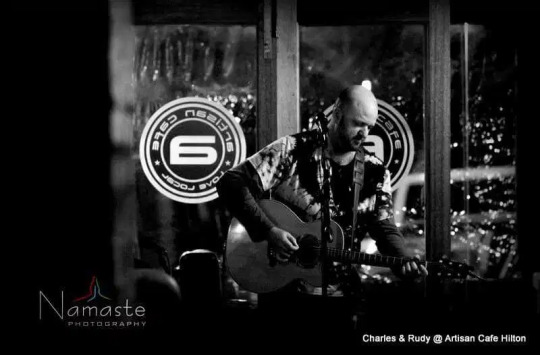
0 notes
Video
youtube
Charles Webster on Gender-based Violence and Rape Culture
0 notes
Text
Rape Culture Roulette – Every Woman’s Daily Game
Presented by Charles Webster on the 12th of September, 2019 at:
Jeppe high School for Boys, Kensington, Johannesburg
St Davids Marist Inanda, Johannesburg
DISCLAIMER: this speech is an accurate reflection of most of what I said. Because I speak partly from notes and partly from the heart – the speech changed slightly and readers who were there may notice some differences.
WHO AM I?
I am you. I wore the blazer for five years (or one like it), and I know what is said in boys’ schools. I am not here to tell you you’re all rapists. But I am here to tell you that we can all contribute to rape culture.
I’m also husband to a wife, and a father to two daughters, and I care enough about their safety and their happiness to have stayed up until 2am to figure out what to say to you guys, to wake up at 4am to drive to the airport for an hour, to take a flight from Durban to Johannesburg to be here today.
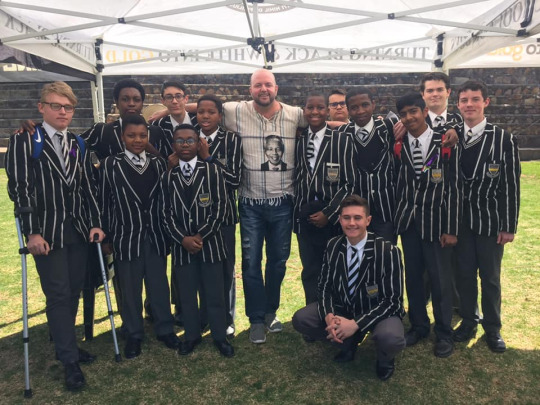
This is not a game - but I’d like to start off by talking about a game. RUSSIAN ROULETTE Have you ever heard of Russian Roulette? (Show of hands)
Okay - so, most of you. As you know it’s a simple game. You take a revolver with six chambers, put a cartridge into one of them. You spin the cylinder and snap it shut. Then you hold the gun to your head and pull the trigger. If you’re lucky, you get one of the five empty chambers. If you’re not so lucky…BOOM.
What if I said to you that every morning, in order to go out into the world and live your normal life, you have to play Russian Roulette?
I have owned a gun, and anyone who’s ever done any serious shooting knows that the first rule of handling a firearm is that you treat every gun as if it’s loaded – even if it isn’t.
So, if you’re wise and your self-preservation instinct is intact, you’d rightly tell me that #gunsaredangerous. You’d tell me I’m crazy, that my expectation is totally unfair, and that there’s no way you’re going to play Russian Roulette just in order to have the privilege of going out into the world and living your life.
But what if I responded to your hashtag and said, but #notallguns are dangerous… would that make you feel better about the demand? Would it change the fact that even though you’re probably not going to get the chamber with the live round in it, there’s still a scarily high chance that you will? Does it change the fact that you have to treat every gun as if its loaded, even though you know in your head that #notallguns are?
RAPE CULTURE ROULETTE
Now, let’s imagine a new game. I call it: “Rape Culture Roulette”, and here’s the thing - women have to play it.
Every. Single. Day.
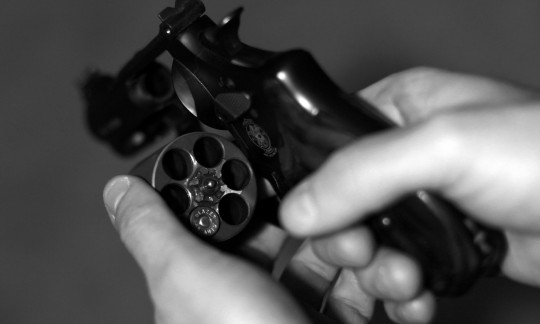
If they want to exist in the world, if they want to walk out of their front doors in the morning and go out to school, to work or to relax, they have no choice.
How does it work? So if you’re a woman, you wake up in the morning and in the gun that you are forced to hold up to your head, there are not six chambers, but (let’s say) a hundred. These hundred chambers are the hundred men that a woman might encounter during the course of a typical day.
Her husband or boyfriend, father, brothers, the newspaper seller on the corner, the guy selling coffee at the convenience store, two or three guys in the cars around her at every intersection on the way to work, twenty or thirty male colleagues, another fifteen or twenty at the restaurant where she’s having lunch… you get the picture. Some of the chambers have cartridges in them, and some of them are empty. The empty chambers represent the guys who behave appropriately towards her. Let’s be generous and say it’s the majority – sixty or seventy of them, who fall into this category.
The chambers with cartridges in them represent all the guys who, sadly, do not. Let’s start off big. There’s one chamber with a rapist in it. Then four or five chambers of guys who might catcall her as she walks past. Then there’s a chamber with a woman beater, and then half a dozen who rub up against women as they pass them in the elevator or the passage. Ooh, here’s a bad one – this next chamber has a murderer, but the next twenty aren‘t as bad – they contain a couple of guys who tell tasteless rape jokes, and another eighteen who just laugh at them, or say nothing. Then maybe half a dozen who refer to their mates as “pussies” when they do something that isn’t supposed to be done by a “real man”, and a few guys who mansplain to women, don’t listen to them, and talk over them in meetings. Again – you get the picture. As an article by Eusebius McKaiser in the Mail and Guardian said just a few days ago: “A woman is not safe at home. She is not safe at the tavern. She is not safe at the post office. She is not safe at work. She is not safe at the club. She is not safe walking from the tavern to her home. She is not safe walking to the post office. She is not safe from the guns of her boyfriend that were supposedly bought to keep them both safe from strangers. She is not safe when she encounters a stranger. She may be even less safe when she is with someone she knows intimately. She is not safe when she is with an official working for the state. She is not safe when she is drinking with men she has known all her life. She is a continued target of predatory men who have no regard for her intrinsic dignity and rights to bodily and psychological integrity. Which is why each South African woman has asked this week: “Am I next?”[1] Every day, women wake up, and as they go about their days, they pull the trigger – not once, but every time they meet a man. I need to stress again, here, that this isn’t a choice. Women, to live their lives, have to go out into a world where they take a risk with every man they meet – and I’m not talking about strangers. IT ISN’T STRANGERS Yep, I’m even talking about husbands, father, sons.
But let’s start with a few statistics: “According to the Rape Crisis Centre (in Cape Town)… it is estimated that 40% of South African women will be raped in their lifetime and only 8.6% of rape perpetrators are convicted.”[2]
That’s nearly half of South African women. Are you surprised that women wake up in the morning and wonder whether they will be next? I ask you to put yourselves in that position and think about how your life might feel and be different if that were your reality.
But back to my point – it’s not strangers they mostly have to be worried about. In fact, the opposite is true. To quote the Rape Crisis Centre again, “Unfortunately, most people believe rape only occurs in dark alleyways. But Rape Crisis Centre’s new campaign indicates the truth is closer to home. The campaign aims at highlighting that approximately 68% of rape survivors know their rapist. They have had their trust broken in the workplace, home and [in their] communities.”[3]
So there definitely won’t be a rapist in every woman’s day, every day, but over the course of their lives, South African women have to wake up to the daily knowledge that they have a chance of being one of those four out of every ten women who will be raped. My daughters have asked me more than once if I think they have a chance of making it through life without becoming victims.
WOMEN CAN DO VERY LITTLE ABOUT IT
If you’re thinking women can solve the problem by being wise about where they and learning to defend themselves:
My first response is - are we really no better than this, guys? Men aren’t mindless animals, and shouldn’t be expecting women to take responsibility for the fact that men refuse to take responsibility for their own actions. We are better than this, guys. Are we really unable to control ourselves at the merest sight of a bit of leg, or an exposed tummy?
I don't care if a woman is walking down the streak stark naked, she's still not asking for rape or unwanted contact. There's a difference between women choosing to dress the way they want to, and men not taking responsibility for their sexual impulses.
My second response is that it really doesn’t seem to matter what women do. As this powerful exhibition demonstrates, they don’t have to dress sexily to get raped.
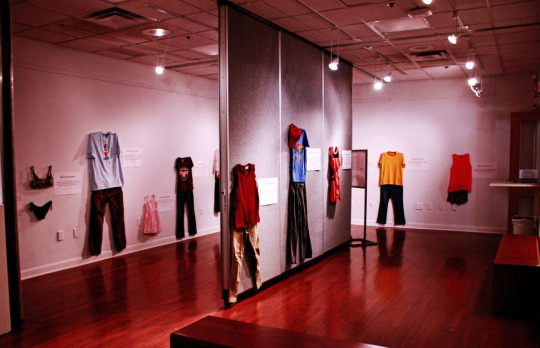
IMAGE: JENNIFER SPRAGUE They don’t have to go specific places, or drink alcohol or do specific things to get raped. Because statistically it’s mostly men they know and probably trust who rape them. In any case, almost half the time, victims are children. A Timeslive headline in 2018 proclaimed: “Children victims in 42% of all rape cases recorded.”[4] Old women get raped. Nuns get raped - even babies get raped. Are we going to blame their clothes and their drinking habits, too?
In the meantime, every single day, women are quite likely to encounter some guy licking his lips at them in the traffic, or some guy following them in his car as they walk home from the shop (which has happened to my wife more than once). Some middle aged guy propositioning them for sex outside the toilets in the shopping mall (which happened to my one daughter – to get rid of the guy she had to resort to asking him loudly and publicly if he wanted to see her dick, and pretend to start unbuttoning her trousers – because men like that rely on women being worried about “causing a scene”). Then there’s the guy at a live music venue who got a little a little bit too touchy-feely with my other daughter at a show. He only left her alone after I spoke to him – twice. In fact, the number of times I go out with my wife or my daughters where some creep doesn’t look at them inappropriately, touch them without consent or make suggestive remarks is frighteningly small.
A PRISONER’S PERSPECTIVE Maybe you think having someone making remarks isn’t so bad – maybe you’re thinking, as a guy, that you’d quite enjoy it if women did that to you, and that it’s actually quite a compliment.
So let’s introduce some perspective into the conversation. I want you to imagine that you are in prison. You’re a brand new inmate… you’re not a murderer but maybe you committed some kind of white collar crime like cheating on your taxes or defrauding a business partner.
I want you to understand that you are now in a world where you are being looked at as someone’s potential bitch. Someone’s pieces of ass. And that someone is twice your size and ten times as tough. They want power over you, and to relieve their sexual urges – and you are powerless to stop them.
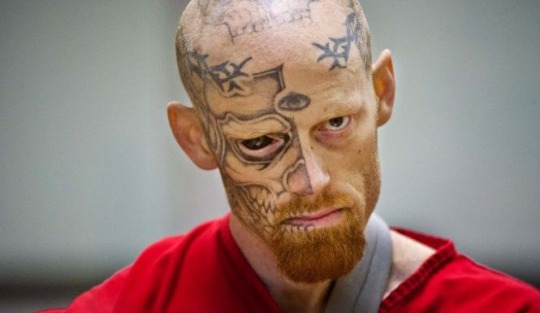
I asked women on my Facebook timeline to send me comments they’d like to share with 100 young men if they had the chance – and here’s one of them. She talks about: “The system that he would have no say in… the people who had power over him who were often corrupt and not 'fair' in their dealings, being at the mercy of the very real threat of both physical and sexual violence all day, every day, the fact that nowhere and no-one is actually 'safe', and the feeling of being powerless to do anything about it....and the people in your life who are present (family and friends who can visit you there) but have no real understanding of what it's like and can leave whenever they want to, or not think about it whenever they want to, because it doesn't directly affect and impact them.” Here’s another: “The sexist jokes, the locker room talk - these are not harmless talk. Imagine a scenario where you're in prison, from pretty much any movie or TV show you can think of. Imagine you're now the target of those kinds of jokes and locker room talk from someone physically stronger than you, and/or in a position of more power than you.” The bottom line is – how would you feel if the gorilla in cellblock D was looking at you and licking his lips while commenting about the shape of your butt, or grabbing his crotch at you? Here’s the key message:
You shouldn’t be saying or doing anything to women that you’d be uncomfortable with someone big and scary, in prison, saying or doing to you.
CONSENT IS A THING
We really need to talk about consent. I hope you understand, in the light of my prison scenario, why consent is important. (Watch this Youtube Clip for more) If you want to talk about rape culture you have to start with consent. I find it noteworthy that consent is very important when other people do things to us, but is somehow less important when we are the people doing things to others. Because let’s face it, guys, the kind of pussy you’re referring to when you go “kss, kss!” as a girl walks past is not a cat, and I don’t think you’d enjoy the guy from cellblock D crowing like a rooster when you walk by because he is keen on your cock.
I want you to think about the guy in cellblock D, and ask yourself whether “not saying no” is the same as saying yes. If you’re alone with him in your jail cell and he’s about to do things to you that you don’t like – would you be quiet because you’re actually keen – or would it be because you’re hoping he won’t murder you as well as rape you? Unless somebody is active and enthusiastic about their consent – it’s not consent.
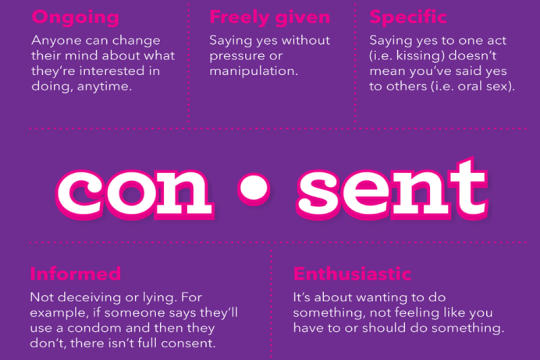
A comment I got from a female friend on this topic was: “A guy I knew once groped a friend of mine in a bar, and couldn't (at all) understand why she wouldn't welcome him touching her boobs, obviously this is a pleasurable thing. He’s a guy, she’s a girl – what’s the issue? I asked how he would like it if a big guy walked up and grabbed his crotch, just out of nowhere? He got the point.”
ABOUT RAPE CULTURE So you ask what real harm a rape joke can do? Or a catcall? As my prison story shows, when it comes from someone who has the power to act on it, it suddenly becomes very real, and very frightening.
Rape culture is not about saying every man who catcalls is a rapist. “Rape culture is a sociological concept for a setting in which rape is pervasive and normalized due to societal attitudes about gender and sexuality.”[5] Think about casual sayings about “throwing like a girl” or “fighting like a girl.” On some sports fields now you’ll hear players talking about a “Rapist’s Touch” – which is used for a player “with a first touch of the ball that is so horrid that it goes immediately to the opposite team or out of play.”[6] Maybe some of you are sneering at me under your breath. “What a pussy!”, you might be thinking - another great example of using women’s bodies as the standard by which to insult people. This is rape culture. Sexist attitudes to gender that make women property, or make them inferior, or degrade their bodies as tools with which we insult each other.
So sure – catcalling isn’t the same as rape. An unwanted remark about her appearance isn’t the same as rape. Talking over her at the party, or disregarding her opinion about where to go out to isn’t the same as rape.
But we’re contributing to a culture where…
In a million ways…
In a million places…
At a million times…
…women are told they are unworthy and inferior – in ways we’d never accept as men.
We are talking about disrespect.
Here’s the key to today’s message for you. The message that doesn’t only prove that you don’t have to be a rapist to contribute to rape culture, but should also spur you to act when you hear you mates talking about women, or acting towards them, in certain ways:
Not all disrespect of women ends in rape, but all rapes start with disrespect.
Women live in precisely the kind of world that prison would be to you. The kind of world where half the population is superior to you in terms of physical strength, and where that half of the population has grown up in a society that largely still thinks of women as possessions. A world where that half of the population is sexually attracted to you, and you could be the means of satisfying their urges.
You think I’m talking rubbish with regard to women being possessions? Tell me, then, why women are still “given away” by their fathers on their wedding days? Look it up, guys – the tradition comes from a time when women were used like sacrificed like pawns on a chessboard. They were traded for power to cement allegiances between kingdoms. I’ve told my daughters already – nobody must ever ask me if I’m giving them away on their wedding days. I don’t own them.
But let’s find a more everyday example. Why is it that millions of men around the world who approach women will only leave a woman, if she gets a friend to pretend to be her partner, or point out her wedding ring or her partner? What is it that makes so many of us think that women don’t have the right to say no because they’re simply not interested?!
WOMEN OWE US NOTHING
In four-in-ten world where women have to play Rape Culture Roulette on a daily basis, I’m telling you now, guys… women owe you precisely nothing.
They don’t owe you a conversation because you’ve done them the “honour” of being nice to them. They don’t owe you a smile. They don’t owe you a phone number. They don’t owe you sex because you’ve bought them a meal. And they shouldn’t have to tell you more than once that they’re not interested – nor should they have to explain why. And if you are lucky enough to have someone show an interest in you, they are not obliged to follow through with sex – they have a right to say “no”, or “stop” at any time. I don’t care if you’re lying on the bed next to her, and you’re both naked. For you to insist, and continue with sex beyond that point, is rape.
FEMINISM
Every man should be a feminist. I can imagine the eye rolling that’s going on. I can hear the comment about how feminists are man haters, how “Feminazis” are unreasonable and actually want to walk over men. And I’m sure there are such people – but let me tell you that the tiny minority of feminists who think that way are a convenient excuse for those who want to write off feminism as a whole.
For those of you who haven’t studied feminism, and I talk to a lot of feminists – the massive, overwhelming majority of feminists are simply people who want equality for women. Feminism simply means being a decent human being.
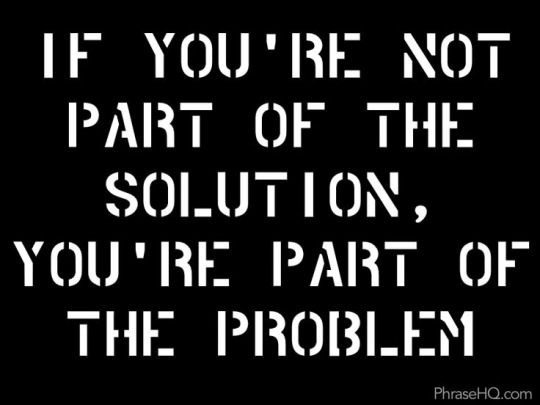
Now – I have a question for you. This is the Facebook post that led to me being here today:
MEN: ARE YOU PART OF THE PROBLEM?
If your pride is more important to you than women fearing for their lives because of how common rape and murder are, you’re part of the problem.
If being offended by generalisations and responding with #notallmen is more important to you than addressing the reasons those generalisations are necessary in the first place, you’re part of the problem.
If you’re fragile you expect women to be ‘nice’ about how they deal with the bullying, rape and murder men inflict on their sisters, then you're part of the problem.
If you’re not spending time thinking about how you are privileged because you don’t have to half of the world’s population as a threat to your life until they prove otherwise, you’re part of the problem.
If you say or do things to women you wouldn’t want a large man to say or do to you in prison, you’re part of the problem.
If you’re not calling out other men when they treat women as objects for their personal gratification, you’re part of the problem.
If you’re not making the effort to understand consent, and that women are equal to men in moral value and legal rights, you’re part of the problem.
If you call women “sluts” for the same things that get men labelled as “studs”, you’re part of the problem.
If your response to a woman being groped, cat-called or receiving other unwanted sexual attention is that “boys will be boys”, you’re part of the problem.
If you ask what a woman was wearing or why she was drinking or was in a particular place when she was harassed or raped, you’re part of the problem.
If your expectation is for *women* to educate you, or for *women* to do the speaking out (when they’ve been trying to do so and getting beaten and killed for their efforts since time immemorial), you’re part of the problem.
DOING NOTHING IS DOING SOMETHING There’s a quote that was used by John F. Kennedy once – though nobody actually knows who said it originally. It goes like this: “The Only Thing Necessary for the Triumph of Evil is that Good Men Do Nothing.” In a world where our society is so damaged that four in ten South African women will be raped in their lifetimes, the default setting is horrific. Doing nothing in the face of that is the same as doing something – because silence is assent. What can you do?
You don’t have to be an activist and stand up here like me. You can make sure that you’re not the one catcalling or laughing at rape jokes. You can make sure you call out your mates who do. If you’re worried about getting beaten up, walk away from the conversation to make your disapproval plain – end friendships if you have to.
It’s a funny thing – in a country where forty percent of women get raped, every women knows someone who’s been raped, and every man who cares enough to ask or be involved, knows a woman who’s been raped. I know several. Yet, somehow, we men know very few rapists.
We seem to have raised generations of men who are emotional children.
It’s time for men to:
Grow up.
Stand up.
Speak up.

Rape culture is everywhere: understand what it means before you whine about “#notallmen” or “not being a rapist”. Sexism is ingrained into (even western) society. Fight for equality – be a feminist. Not because “every woman is someone’s wife, daughter or sister” - women are not defined by the way they relate to men.
Do something because women are also humans - and deserve the right to the same basic freedoms and safety you have (in most cases) never had to give a second thought. And if you did - it was most probably because another *man* was threatening it. Do something because in world of Rape Culture Roulette, where four out of every ten South African women will be raped in their lifetimes, and where forty percent of those who are raped are under-age children, and only a tiny minority of rapists get convicted, doing nothing is doing something.
Because a world in which women can live free of fear is a better world for you as well, if you care enough to recognise the fact.
[1] https://mg.co.za/article/2019-09-06-00-the-chain-between-words-and-violence?fbclid=IwAR0PUCeQ1B1nHBHnz6FdRS9fZAMgBQ2uUq6oM0YwL0XnJMUqgBcwb0jC9mg#.XXO7WvA3vwQ.facebook
[2] https://www.iol.co.za/news/south-africa/western-cape/rape-is-often-perpetrated-by-a-familiar-face-19917092
[3] Ibid.
[4] https://www.timeslive.co.za/news/south-africa/2018-05-16-children-victims-in-42-of-all-rape-cases-recorded/
[5] https://en.wikipedia.org/wiki/Rape_culture
[6] https://www.urbandictionary.com/define.php?term=Rapist%20Touch
1 note
·
View note
Text
4. When Civil Liberties Clash
(LGBTQI + Religious Harm = Something’s Gotta Give)
Civil liberties often clash. When this happens, as the idiom says, something’s gotta give. We’ve all heard of limitations on free speech when individuals are defamed in public. You can’t exercise free speech if you’re badmouthing someone and it’s not in society’s interest to do so. People in free societies also generally frown on cruel and outmoded practices like stoning of adulterers, even though the Abrahamic religions contain instructions to do so – and it does happen in some societies.
My point is: it’s never a question of whether freedom of speech or freedom of religion can / should sometimes be limited. Both of them can, and should, sometimes. It is only a question of when.
(Quick disclaimer: my point of departure has always been, and continues to be, that the State should only get involved in these clashes when absolutely necessary, so civil liberties should be maintained as the default position, and limited only by exception and as little as possible – for reasons of combating serious and demonstrable harm.)
Given the examples above, it’s clear that the clash between LGBTQI rights and Religious Freedom doesn’t alone as a clash between competing civil liberties. A foundational premise of this dissertation is that absolute tolerance ultimately leads to an intolerant society. That’s because tolerating all intolerance means the intolerant have free rein and ultimately simply take over. For those with a more philosophical bent, Popper’s Paradox of Tolerance is the relevant reference for further reading. Tolerance is generally understood to be the ability or willingness to leave, unmolested, opinions or behaviour that one does not necessarily agree with[1], and intolerance is an inability or unwillingness in this regard. (It’s important to note that respect is not a necessary condition for tolerance. In fact, tolerance, by definition, is the allowance of ideas or actions that one potentially does not respect, or agree with, to continue unmolested. Respect is more active approval towards ideas and actions than is required by simple tolerance.)
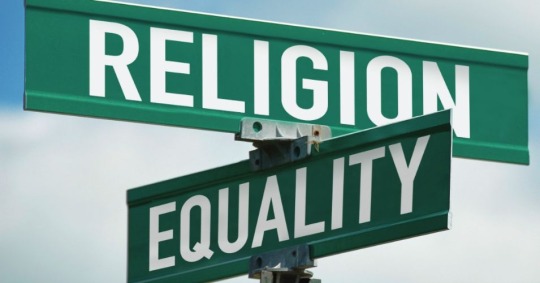
To maintain a functional society, it’s generally necessary to be able to tolerate ideas and actions you don’t agree with, but which do not require legal punishment or (perhaps) even public disapproval. Opposing ideas, by the very nature of human beings, have to coexist in peace for society to continue.
So, what do we do when the rights of marginalised LGBTQI+ South Africans clash with the speech / religious convictions of the religious? How do we maintain a society that retains fair and balanced civil liberties for all, while preventing the religiously intolerant from unfairly imposing prejudice on the LGBTQI+ community (which includes religious people, as pointed out in my last blog)? In order to do so, a certain amount of homophobic thought must be tolerated (it becomes untenable to police people’s thoughts) but, simultaneously, where thoughts spill over into speech and actions, as also described in my last blog, it needs to be addressed, and potentially curbed – either socially or legally.
Religious homophobia sometimes evokes simple disapproval in social settings, or on social media. Before going to legal prosecution or censorship, social disapproval might be escalated to group disassociation like de-platforming of voices by venues or institutions, or the loss of job. In the context of current societal battles in the areas of social justice for LGBTQI+ and religious intolerance, the question of how much intolerance to tolerate becomes a deeply practical, and deadly serious, one.
It is at this point that the homophobe will tend to cite freedom of speech or religion in defending their actions. To borrow from the world of employment, this is where the well-established concept of fair discrimination[2] becomes relevant.
Yes. It is possible to respond heavy-handedly. It is nevertheless crucial to understand that fair curbing of freedom of speech or religion in order to prevent demonstrable harm to marginalised groups should not, itself, be illegitimately construed as more oppression. A response to homophobia that is proportional to the severity of the religious homophobia being countered falls into the realms of self-defense, and is in no way the moral equivalent of someone preaching hate and trying to hide behind a false biblical pretext. The fact that a state, especially a secular state, includes a large majority of adherents of a particular faith, does not (in my view) translate into an obligation for that state to make special accommodations for religion – and especially not at the cost of marginalised people. There seems to be little reason to think that, just because a religious group happens to be in the majority, appropriate response in the form of SI should be limited to a greater extent than would be the case in a state without such a majority. If you’re interested in deeper reading on the discussion about when to afford protection to religious speech that might contain harmful homophobia, check out Brian Leiter and Martha Nussbaum’s Why Tolerate Religion[3] and Nussbaum’s The New Religious Intolerance[4], respectively.
In short, I don’t believe it’s justified (either socially or legally) to give biblically based homophobia special accommodation (legal exemption from rules normally applied to all citizens, or special permission to express religious or conscience-based convictions in ways that contradict laws normally applicable to all citizens). The implications for society would simply be too grave, in my view. The kind of society that doesn’t care whether marginalised groups are harmed, and gives religious people (of any sort) special latitude to cause that harm, is not the sort of place I’d want to live. Ironically, I don’t think it’s the sort of place religious people would want to live, either, if the tables were turned. A Christian woman denied a passport without her husband’s permission (as happens in some Islamic states) would become the subject (rightly) of massive outrage here in South Africa. So why are we allowing harm to come to our LGBTQI+ compatriots on the basis of Christianity itself? Neutrality on the part of the state is everyone’s best protection against the tyranny of some other majority. Basic accommodation by the state of all our civil liberties should be enough for everyone. Write to me if you have thoughts or questions!
[1] Cambridge Dictionary, Definition of 'tolerance', https://dictionary.cambridge.org/dictionary/english/tolerance,
Collins English Dictionary, Definition of 'tolerance, 'https://www.collinsdictionary.com/dictionary/english/tolerance,
Oxford English Dictionary, Definition of 'tolerance,
https://en.oxforddictionaries.com/definition/tolerance
[2] South African Parliament, Employment Equity Act, No 55 of 1998, Ch. 2, section 6
[3] Brian Leiter, 2013, Why Tolerate Religion?, Princeton University Press
[4] Martha C. Nussbaum, 2012, The New Religious Intolerance, The Belknap Press of Harvard University Press
1 note
·
View note
Text
3. Biblically-based Homophobic Beliefs Inspire Real-Life Hatred
(And even Christians recognise the fact)
It’s nothing new for the Abrahamic religions to clash with the homosexual community.
Christianity, Judaism and Islam all have homophobic denominations or sects, though it would not be fair to classify any of them as wholly homophobic in their practices or even in terms of their theologies. What often seems to happen, however, is that “average” adherents express homophobic opinions, in words or actions, that negatively impact the everyday lives of LGBTQI+ people.

Homophobic Christian teaching with respect to homosexuality exacerbates already-elevated mental health and suicide rates among gay people. Suicide attempt rates, and suicide rates, are heightened among LGBTQI+ teens, particularly where they are rejected, and especially where the rejection comes from their close communities, families, persons regarded as moral/religious authorities [1]. Pew research [2] has established:
The survey shows a clear link between what people see as essential to their faith and their self-reported day-to-day behavior. Simply put, those who believe that behaving in a particular way or performing certain actions are key elements of their faith are much more likely to say they actually perform those actions on a regular basis.
It’s worth noting that the church itself is taking on explicitly Christian homophobia In other words, the need to address Christian Biblically-based homophobic hate speech is not driven by an anti-religious agenda per se. There are those combating such hate speech who do oppose religion more broadly, but it is not necessary to be anti-religion to recognise the need for activism, and the movement to address biblically-based homophobic and/or hate speech from within Christianity itself lends much objectivity to project.
In “When faith does violence - Re-imagining engagement between churches and LGBTI groups on homophobia in Africa” [3], theologians Gerald O. West, Kapya Kaoma and Charlene van der Walt note that: “African church theologies are not neutral, they are heteropatriarchal.” Their view is that, in fact, the biblically accurate/preferable biblical theme to emphasize is one that “privileges the experience of marginalized communities.” In other words, they focus on themes like those of Exodus, where god is claimed to hear the cry of slaves and ultimately sets them free, (Exodus 3:7), leads them to a promised land and allegedly protects them from oppression by means of prophets. West, Kaoma and Van der Walt would have their readers focus on the fact that, for example, the biblical Christ is “born on the margins of a colonized and marginalized people” (Luke 2:1). They conclude that:
“It could and has been argued that within the shape of scripture God acts in specific social contexts, taking sides with the oppressed across historical time and geographical space, reminding us of the fact that marginalized communities are the springboard for Christian theology, ethics, and ministry (Croatto 1987). (p10)”
I’m not getting involved in arguments over the theological accuracy of one claim over another. I just want to build the case for countering harmful practices that are informed by beliefs which, in turn, are defined or informed by the Christian bible. In that light, I find it compelling that, even within the Christian church, harm to their LGBTQI+ sub-communities is noticed, and is being formally addressed, in both theological and academic circles. From the LGBTQI+ community’s side, the message was reinforced at an SAHRC-sponsored “In-country Meeting On Sexual Orientation, Gender Identity And Expression in November 2017”[4], by Glenton Matthyse from transgender lobby group, Gender Dynamix[5]. Matthyse expressed the view that: “Religion plays a major role as to why LGBTI members are still discriminated against today.” At its final panel, the Meeting handled the intersection of SOGI issues, religion and culture, and singled out SOGI-driven religious and cultural discrimination.
“Reverend Nokuthula Dhladla explained that this is an issue which churches have resolved to discuss due to the excessive violence and discrimination suffered by persons in the LGBT community. Materials have been developed on the role of churches in the context of violence against LBGT groups, with the purpose of training church leaders. While the process is ongoing and there continue to be challenges, the space for dialogue on religion and LGBT rights has been opened up, which represents significant strides compared to the previous status quo. Keval Harie of the Gay and Lesbian Memory in Action (GALA) posed the question of how to create spaces for young, gay and black youth in African communities. These spaces need to be safe and allow for the voices of marginalised individuals to be preeminent in the narrative. While religion is deeply private and protected by the Constitution, both the State and religious institutions tend to use religion to divert attention from important conversations around SOGIE-based discrimination.” (Pg. 26)
In other words, “it’s my faith, so don’t dare touch it” and “I’m just preaching the Word of God” are being recognised as smokescreens – even from within the Christian community. It’s time to end the harm. If you have thoughts or comments, feel free to get in touch.
[1] John Shore, 2017, Gay Teen Suicides, Bullying and Christianity: A Talk with the Trevor Project Director (citing Massachusetts 2007 Youth Risk Survey), http://www.huffingtonpost.com/john-shore/a-talk-about-gay-teen-sui_b_745912.html)
[2] Pew Research Center, 2016, “Religion in Everyday Life”, Pg. 9. http://www.pewforum.org/2016/04/12/religion-in-everyday-life/
[3] The Other Foundation, Gerald O. West, Kapya Kaoma and Charlene van der Walt, 2017, “When Faith Does Violence” http://theotherfoundation.org/wp-content/uploads/2017/01/When-Faith-Does-Violence.pdf
[4] South African Human Rights Commission, 2017, SAHRC and Network Of African National Human Rights Institutions’ (NANHRI) In - Country Meeting On Sexual Orientation, Gender Identity And Expression - https://www.sahrc.org.za/home/21/files/South%20Africa%20Incountry%20Meeting%20Report.pdf
[5] Gender Dynamix - www.genderdynamix.org.za
0 notes
Text
2. Biblically-based Homophobic Hate Speech’s Golden Thread of Harm
From within Christianity in South Africa – churches, Christian homes, prayer meetings and bible studies – biblically-based[1] value judgments of homosexuality are routinely preached, spoken about, and generally perpetuated[2] with respect to lesbian, gay, bisexual, transgender, questioning or intersex (LGBTQI+) people. Christians and their leaders are commonly known to argue that the bible specifically calls out homosexuality as a “sin”, as “unnatural”, “detestable” or an “abomination”[3].

On that basis Christians claim to be constrained by their consciences as religious people to adhere to, profess and broadcast homophobic views and, sometimes, to act upon them. The question arises whether potential harm caused by the exercise of such rights can be justified when weighed against the civil rights of the marginalised LGBTQI+ community, or whether the dignity and safety of that community trumps religious rights to express such views.
To answer, I will draw a clear line from the Christian demographic dominance of South African society, through biblical doctrine to its impact on profoundly held Christian belief, and the latter’s impact on speech/actions by believers. Later, I’ll start to look at some of the harm caused by these beliefs. The golden thread will be briefly outlined here, and then detailed in later chapters. So here it is, in brief:
The reasons I offer for thinking that actions are impacted by beliefs which, in turn, are informed by scriptures are: i) that the bible itself exhorts believers to act on its precepts, ii) that believers themselves tell us they do so, and iii) that research confirms a strong correlation between the everyday actions of believers and their strongly held beliefs[4].
Given South Africa’s 80%+ Christian population[5] sample group, the widespread incidence of biblically-based homophobic/hate speech (BBH/HS) can reasonably, at least partially, be attributed to biblical writ. It’s important to note that I do not claim that this applies to all Christians, or even that all Christians who hold such views, necessarily vocalise them. To further demonstrate the link between scripture, belief, action and harm, I will qualitatively sample the attitudes towards the LGBTQI+ community of the four largest denominations in SA, whose membership adds up to 12 915 187 people, or 36.1% of the Christian population of South Africa. In terms of the last step, the harm itself, I will cite two major studies.
First, the 2015 Gauteng City-Region Observatory (GCRO) Quality of Life Survey according to which just 56% of respondents agreed that LGBTQI+ people deserve the same rights as other South Africans, 29% actively disagreed, and 14% think violence towards LGBTQI+ people is acceptable.
Second, the Hate Crimes against Lesbian, Gay, Bisexual and Transgender (LGBT) people in South Africa (2016) study, which concluded that over half (55%) of LGBTQI+ people in SA fear Sexual Orientation, Gender Identity (SOGI) discrimination and that, in fact, 44% of respondents have actually experienced discrimination in their everyday lives during the last two years. I add to that, evidence of LGBTQI+ youth being up to four times more likely to attempt suicide than straight peers, with LGBTQI+ youth who are rejected by their families being more than eight times as likely to attempt suicide than LGBTQI+ youth who do not suffer such rejection.[6] [7] Have thoughts? Questions? Get in touch – [email protected].
[1] All texts from Bible, New International Version, 1978, : Genesis 19:5; Leviticus 18:22; Leviticus 20:13; Romans 1:26-27; 1 Corinthians 6: 9-10; 1 Timothy 1:8-10
[2] - Methodist church of Southern Africa, Profession of the MCSA’s Unity and Diversity Within the Context of the Church’s Conversation on Same-Sex Relationships, pg. 2 - https://www.methodist.org.uk/media/2110/marriage-mcsa1-a-profession-of-unity-and-diversity-0415.pdf;
- Leonie Wagner, Timeslive, Dutch Reformed Church Defense of position on gay clerics - https://www.timeslive.co.za/news/south-africa/2018-08-21-dutch-reformed-church-to-defend-decision-on-gay-clerics/;
- Unattributed, ITV Report, South African pastor responds after Scottish Borders visit is cancelled amid homophobia accusations - http://www.itv.com/news/border/2016-08-19/south-african-pastor-responds-after-scottish-borders-visit-is-cancelled-amid-homophobia-accusations/ ,
- South African Press Association reporter, 2004, SACC urges caution over gay marriages - https://www.iol.co.za/news/south-africa/sacc-urges-caution-over-gay-marriages-228514 ,
- Buchule Raba, Sunday World, 2015, “Rhema Bible Church Homophobic” says gay man, https://www.pressreader.com/south-africa/sunday-world/20150510/282054800601295 ,
- Vhahangwele Nemakonde, Citizen, 2017, Somizi storms out of Grace Bible Church over homosexuality remarks - https://citizen.co.za/lifestyle/1404845/somizi-storms-out-of-grace-bible-church-over-homosexuality-remarks/;
- Nigel Day-Lewis, undated, New Covenant Ministries International, New Testament Studies, http://www.ncmi.net/images/Resources/Bible_Survey_-_New_Testament_Studies.pdf;
- Vatican, 1951, Chastity and homosexuality, Catechism of the Catholic Church - Article 6: The sixth commandment. Vatican.va..
- Freedom of Religion South Africa, unattributed, 2018, Civil Union Amendment Bill – Parliament on Collision Course with Concourt - http://forsa.org.za/civil-union-amendment-bill-parliament-on-collision-course-with-concourt/?fbclid=IwAR0GoQI7tHKdjAX4pYd0NR1KlhKWs_qkszAB0aQ43OfMGe91GaMUb9fkvsc
- The Presidency, Government Gazette, Republic of South Africa, 2006, No. 17 of 2006: Civil Union Act, 2006 - http://www.saflii.org/za/legis/num_act/cua2006139.pdf
[3] All texts from Bible, New International Version, 1978, Zondervan: Genesis 19:5; Leviticus 18:22; Leviticus 20:13; Romans 1:26-27; 1 Corinthians 6: 9-10; 1 Timothy 1:8-10
[4] Pew Research Center, 2016, “Religion in Everyday Life”, Pg. 9. http://www.pewforum.org/2016/04/12/religion-in-everyday-life/
[5] Statistics South Africa, “Census 2001” (the last time denominational affiliation was polled in SA) http://www.statssa.gov.za/?page_id=3892,
Media Club South Africa, unattributed, 2001, Fast Facts, http://www.mediaclubsouthafrica.com/landstatic/82-fast-facts;
[6] Ryan, C.; Huebner, D. et al., 2009, Family rejection as a predictor of negative health outcomes in white and Latino lesbian, gay, and bisexual young adults, pp 346-352, https://www.ncbi.nlm.nih.gov/pubmed/19117902;
[7] John Shore, 2017, Gay Teen Suicides, Bullying and Christianity: A Talk with the Trevor Project Director (citing Massachusetts 2007 Youth Risk Survey), http://www.huffingtonpost.com/john-shore/a-talk-about-gay-teen-sui_b_745912.html)
0 notes
Text
1. Why does Biblically-based homophobia get a free pass?
South Africa’s population is around 80% Christian. Much of the Christianity found here is of the conservative sort and homophobia is, simultaneously, very common common in our society. So it seems intuitively likely (given the common biblically-based belief that homosexuality is a sin) that much of South Africa’s homophobia stems from scripture, translates into words and sometimes actions - and ultimately harm to the LGBTQI+ community. This blog series is based on my Philosophy Masters dissertation titled: “How should Biblically-based Homophobic/Hate Speech be treated in South Africa, legally and socially?” in which I argue that Biblically-based homophobic hate speech should not be treated (either in terms of social disapproval or legal punishment) any less severely than any other form of hate speech. The aim of these blogs is to break that dissertation down into bite-sized chunks, more palatable to the lay reader. Hopefully they will also be useful as free-standing arguments to address various aspects of the debate on homosexuality in our religiously dominated society, on a point-by-point basis.

The reasons I have focused on Christianity are i) that I hope to help affect jurisprudence in a manner that impacts my own society, ii) that I wanted to start by dealing with the main religious influencer in my own context before branching out more broadly to other religions or geographies and iii) since Christianity is overwhelmingly dominant in South Africa, it is the obvious candidate for attention.
Given that evidence of the harm caused by homophobic hate speech is fairly unambiguous (I’ll get to this in later blogs), and that openly homophobic statements are uttered publicly by both believers and leaders of Christian groups on a regular basis, one might expect a large number of cases to be reported to the South African Human Rights Commission. The SAHRC’s mandate is, after all, precisely to deal with harm-causing hate speech. Au contraire, very few cases (a few dozen per year) of homophobic hate speech (emanating from whatever source) are reported to the SAHRC. Of those it seems that some cases that arguably have merit are turned away. Simultaneously, annual cases of racist hate speech reported to the SAHRC number in the hundreds – far outstripping their homophobic counterparts.
Specifically, in three years of reporting by the South African Human Rights Commission (SAHRC - 2014/15; 2015/16 and 2016/17) race-related discrimination was reported to the SAHRC 292, 505 and 486 times, respectively. During the same period, SOGI-related (Sexual Orientation / Gender Identity) discrimination was reported 17, 26 and 24 times [1]. Cases like those of Penny Sparrow [2] have become fairly common, but cases of homophobic hate speech reported to the SAHRC or Equality Court, not as much. So while racist utterances tend to draw massive outrage and even legal sanction by means of reports to the Commission, SOGI-related hate speech seems to draw a minute amount of attention in comparison.
It seems that the legal sanction applied to homophobic hate speech, religiously based or otherwise, is too low in gross terms, given the pervasive nature of homophobic hate speech. It also seems that, compared to racist hate speech in particular, homophobic hate speech is vastly under-represented in the reporting stakes. Through these blogs, I hope to paint a picture that can help to inform both legislation and jurisprudence in this regard, to support the creation of laws that moderate homophobia, reduce harm, and influence culture to create a safer environment for LGBTQI+ South Africans. [1] South African Human Rights Commission, 2016/17, Annual Trend Analysis Report, pg.24, https://www.sahrc.org.za/index.php/sahrc-publications/trends-analysis [2] ANC v Sparrow_ _(01/16) [2016] ZAEQC 1 (10 June 2016), http://www.saflii.org/za/cases/ZAEQC/2016/1.html
1 note
·
View note